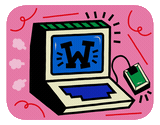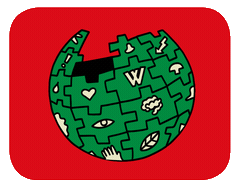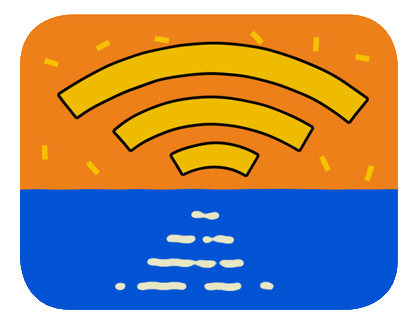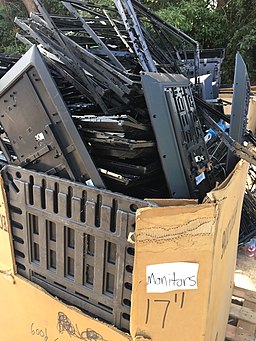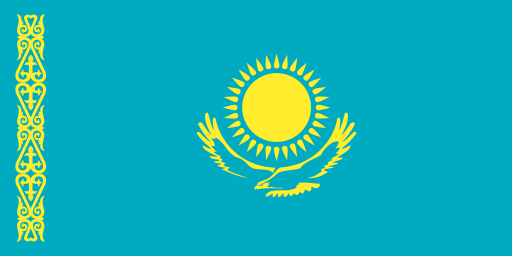Introduction
Wikipedia is the world's largest online encyclopedia and an open-collaboration project with mostly volunteer editors. It is one of the most visited websites in the world with 18 billion page views and nearly 500 million unique visitors a month (Cohen, 2014). However, information on Wikipedia has a strong European and U.S. bias since most Wikipedia editors come from the United States, Germany, and Russia (“Who Writes Wikipedia?”). Wikipedia also suffers from a gender bias. According to Hill and Shaw (2013), 84% of English Wikipedia editors are male. Since 2013, Wiki Education Foundation (WikiEdu), a non-profit organization dedicated to engaging with
academics to improve Wikipedia and promote student learning, has partnered with faculty at different institutions to facilitate Wikipedia editing assignments or projects within the college classroom ("Wiki Education"). WikiEdu now supports instructors at more than 500 institutions, and 19% of new contributors to English Wikipedia are associated with WikiEdu (“Wiki Education”).
Researchers have observed that college students who are actively acquiring research, writing, and analytical skills in their coursework, are well-positioned to contribute to Wikipedia and to help expand Wikipedia’s knowledge base (Ramirez & Marquez, 2021; Vetter et al., 2019). These students typically come from both within the US and from different countries around the world. Using WikiEdu's resources, the authors, both writing instructors, one at Boston University (BU) and one at the University of Southern California (USC), have integrated Wikipedia writing assignments into their undergraduate writing courses before and during the COVID-19 pandemic with both in-person and online course deliveries. Since Spring 2019, the authors have collectively taught with Wikipedia in 29 courses. Their students have edited over 377 Wikipedia articles, created 37 new pages, and have had their 577,000 words and 6,510 references viewed by almost 13 million Wikipedia users.
Despite the widespread integration of Wikipedia writing in college composition courses and research that suggests that Wikipedia has no more errors than some academic peer-reviewed sources, its use in academic circles is still often dismissed by instructors and students (Jemielniak, 2019). Critics of the Wikipedia assignment often point to Wikipedia's "anyone can edit" policy and the potential for malicious vandalism as evidence of the blanket untrustworthiness of the site (Eijkman, 2010). Such criticisms reflect a stark ignorance of Wikipedian policies that promote the addition of reputable sources, as well as the dedication and expertise of many of Wikipedia's editors and the algorithms that patrol for vandalism. However, such skepticism, even if grounded in ignorance or the defensive gatekeeping of knowledge, is a welcome and useful starting point for learning about the realities of Wikipedia and Wikipedia writing, as a critical lens is essential tool for building digital literacy.
In this article, the authors will discuss their perspectives on the Wikipedia writing assignment prior to and during the COVID-19 pandemic and how this assignment was well-suited for use in emergency situations to maintain learning. In particular, they will explore how the Wikipedia writing assignment has helped their students fulfill various learning objectives of their undergraduate writing coursework, such as applying critical thinking skills, evaluating sources, writing neutral prose, and producing public-facing writing (Vetter et al., 2019). They will also present the implications of using Wikipedia to fulfill aspirations of inclusion and accessibility in demographically diverse writing classrooms and its role as a digital teaching tool during remote learning. In addition, the authors will reflect upon their individual experiences using Wikipedia at their respective institutions and discuss their colleagues and students' feedback. The authors will provide examples of their students' edited pages, along with specific assignment sheets and materials to illustrate how Wikipedia can be used effectively in the context of the writing class, both before and during the pandemic, to prepare students to be reflective practitioners and critical evaluators of information.
Wikipedia in the classroom
The integration of Wikipedia writing in college composition classrooms has grown over the past decade as it provides a public-facing forum and a large audience for student work, which can enhance students' motivation and engagement with coursework. The Wikipedia writing assignment can also impact access and equity in a classroom, as students can practice agency in the selection of writing topics. In particular, multilingual students can apply their linguistic and cultural knowledge to contribute to Wikipedia in ways that position their abilities as assets rather than deficits. For students who may not always feel confident in their writing skills, seeing their work online for an audience of many can be a powerful form of representation and public service.
Pedagogical implications of public writing
Teaching with Wikipedia has several positive pedagogical implications. Students are able to work collaboratively or individually on creating new pages or editing existing pages on Wikipedia. They gain insights into course material and learn to critically evaluate information sources. By contributing to Wikipedia through a class assignment, students learn how to conduct research by finding credible sources. They also learn how to write neutral and concise prose. Through their Wikipedia contributions, they improve their academic writing and research skills and learn about attribution and fair use, and they take part in editing an online encyclopedia that is one of the most visited sites on the internet.
Students also take their writing out of the classroom into a public-facing space by editing or creating new Wikipedia pages. Through this assignment, they are no longer just consumers of information. They are also creators of this information (Sweeney, 2012). “Collaborative construction” is an important element in students’ learning: “A key point of collaborative construction is that the students are not merely making something for themselves or for their professor. They are making it for each other, and, in the best scenarios, for the outside world” (Sample, 2011). When writing for Wikipedia, students consider an audience beyond their instructor and in-class peers to include anyone in the world with access to Wikipedia. As a result, students often report that knowing that their contributions will be shared with an authentic and large audience motivated them to "engage in deeper understanding of Wikipedia, knowledge production, and a variety of information literacy skills" (McDowell & Stewart, 2019).
Implications for equity and access
Using Wikipedia in the classroom has positive implications for equity and access in the classroom. Students write on topics that may reflect individual identities and interests that are sometimes marginalized in traditional academic settings. In the context of Wikipedia, students become content creators. Their knowledge, cultures, and backgrounds are valued and are used to make contributions that increase the diversity of topics on Wikipedia. Wikipedia, especially in the multilingual writing classroom, leads to improving the diversity of topics on Wikipedia. Students see themselves as knowledge constructors and communicators. Moreover, when faculty and students work together as Wikipedians, some of the traditional hierarchies in the classroom are minimized for the duration as the assignment "centers their emerging expertise, and empowers them to take ownership of their learning" (Pratesi et al., 2019). Students also learn and apply a process that challenges some of the widespread academic skepticism towards Wikipedia as they bring in and share with the public information that academics normally have access to.
There are content gaps on Wikipedia related to gender and location. Because of these content gaps, there are many topics that are not covered at all or do not have sufficient coverage on Wikipedia. Wikipedia needs diverse editors who can fill some of these gaps. Using Wikipedia-based assignments in a diverse, multilingual classroom is a move towards filling some of these gaps. Wikipedia also suffers from a gender bias. Most Wikipedia editors are male. Balch (2019) reports that women make up between 15-20% of total contributors and that articles about men exceed those about women by about four to one. Less than 18% of the biographies on Wikipedia are of women. Students have access to library resources and other research sources, and instructors have the opportunity to encourage and support female-identifying students as they edit Wikipedia. Providing a supportive classroom environment and encouraging women to edit Wikipedia can potentially lead to more women editors and more representation of women in Wikipedia’s pages.
Impact on Wikipedia
Since the inception of WikiEdu's student program in 2010, over 100,000 students in over 4,800 courses at over 800 universities in the U.S. and Canada have added 80 million words to more than 100,000 articles (Blumenthal et al., 2022).
At BU, since spring 2019, Malavika Shetty has taught 11 upper-division writing classes with 230 students using Wikipedia. Her students have created 31 new pages and have added 2,300 references. The pages created or edited by her students currently have 4,860,000 page views. Shetty's Wikipedia user name is mettysh.

Also since the fall semester of 2019, 336 USC engineering students in Helen Choi's 18 upper-division writing courses have contributed to 120 engineering and science articles. They have added over 4,000 references and 297,000 words, and their work has garnered 8,160,000 views. Choi's Wikipedia user name is 1namesake1.

Assignments
Both instructors have taught with Wikipedia since 2019 with the help of WikiEdu. They use the WikiEdu dashboard materials as part of their Wikipedia assignments to provide specific training on the policies and tools of Wikipedia editing, to select articles, and to track writing progress. And they rely on WikiEdu staff as a source of technical and instructional support.
Although both instructors' students work on a Wikipedia article, the ways in which their students reach that outcome differ, as the instructors use a variety of scaffolded assignments and approaches. For example, while Choi’s Wikipedia assignment is a group project, Shetty’s students work individually on their chosen Wikipedia pages. Shetty's students also translate and create new articles, while Choi's students work on editing a more limited scope of articles within the field of engineering. Both instructors, however, often modify the specifics of their Wikipedia assignment each semester to adapt to external circumstances and to reflect lessons learned in previous semesters.
Assignment descriptions, WikiEdu course dashboards, and examples of student work on Wikipedia for both instructors can be found under External links below.
Boston University
Shetty uses Wikipedia as a 6-week project. It is the final project at the end of the semester in two of her upper-division writing classes: WR120: Language and Technology and WR152: Writing without Borders. Each class is capped at 18 students, and in some semesters, Shetty teaches two or three sections of the class. Librarians from BU Libraries provide pedagogical support, but visiting Shetty's classes either in person or remotely to conduct workshops on editing Wikipedia and to provide information literacy training. Shetty's students begin by completing the assigned training modules on the WikiEdu dashboard for the class related to researching information, using information and images, and editing Wikipedia. As part of the assignment, students can choose to either translate an existing Wikipedia article on one of Wikipedia’s other language pages into English or to identify a topic they are familiar with that has not been adequately covered on Wikipedia or that does not exist on Wikipedia. The choice of topic is based on student interest and whether students can find credible sources related to their chosen topics. Students work on topics related to their backgrounds or interests: TV shows, movies, celebrities they follow, games they play, food, places they live in or have visited, for example.
The assignment is scaffolded before students start editing Wikipedia pages. The assignment is broken up into smaller, more manageable units, and students go through the following assignment sequence:
Students turn in a Project Proposal and a Draft before they start editing live pages. Once students have written up project proposals and drafts, Shetty provides feedback to the students based on the following questions:
- Is the project feasible? Can it be completed within the 6-week time range?
- Is there adequate information available related to the topic? Does the student have access to this information?
- Is the topic too controversial or is it a hot topic Wikipedia page that is being actively edited by too many people?
Students are advised to steer clear of editing pages that are controversial which might lead to editing wars on Wikipedia. Once the project proposal has been approved and peer reviewed, students start researching and adding information to Wikipedia. Editing workshops are held during class, and students work on their pages with input from Shetty during class time. Shetty also holds workshops in class during which she shares information about copyright and fair use, use of credible sources, and use of images.
Students also consult with Shetty throughout the process. If there are elements related to editing that cannot be resolved in the classroom, WikiEdu staff who are assigned to the class are contacted for help.
Students also take into account input and comments from Wikipedia editors who are monitoring their pages.
The project ends with an in-class presentation by all the students. Students present their completed pages and talk about the following aspects in their presentations:
- Background about the topic/page
- Interest in the page
- Missing elements on the page and how the student improved the page.
- What the student learned from the editing experience.
- What the student could have done differently, in retrospect.
Watching peers present their final pages to the class in the form of a final class presentation is a chance for students to talk about their work on Wikipedia and to discuss some of their successes and missteps in front of a group of peers who have also been through a similar editing experience. The Wikipedia dashboard, where the contributions the class has made to Wikipedia is tabulated in the form of words contributed, edits made, and media uploads, makes it easy for students to review each other's work and learn from their peers.
University of Southern California
Choi teaches Wikipedia writing in an upper-division writing course for engineering students called WRIT 340: Advanced Writing and Communication for Engineers. This course is taught in a workshop-style, and most students are third and fourth year engineering majors. Each semester, she teaches two-to-four sections of this course, with about 19 students in each section.
The Wikipedia assignment in Choi's courses replaced a previous group assignment involving a literature review, but the collaborative element was retained to assuage some of the anxieties of learning new tools and editing on a public forum like Wikipedia. Recent research suggests that Wikipedia writing may be well-suited for group work, as collaborative settings may be helpful in strengthening learning outcomes related to the evaluations of sources and may provide support to students as they learn and apply Wikipedia's technical tools (Vetter et al., 2019).
Choi's Wikipedia group project spans about three weeks in the latter half of a 15-week semester. Students choose their own groups of three to four members and select their articles from a list of several dozen choices on the WikiEdu dashboard. This list of articles is compiled by the instructor prior to and during the semester to reflect student interests, topical issues in engineering in the news, and other articles related to engineering that require improvement or are otherwise appropriate for the assignment. Students who are interested in editing an article that is not on the list can propose them to the instructor.
This group assignment is highly structured in terms of task allocation and smaller scaffolding assignments. The following four roles are allocated by and among group members for the duration of the project:
- The Wikipedia expert leads efforts related to the Wikipedia platform; they ensure that all group members understand how to use the editing tools and lead the group in moving edits onto the live platform
- The facts expert leads the group in examining references for suitability on Wikipedia and ensures that group members accurately and sufficiently paraphrase sources.
- The writing expert leads guides the group to write in accordance with Wikipedia's style guidelines and neutral tone.
- The communications manager acts as the instructor's point of contact for group communications and submits in-class assignments on behalf of the group.
This allocation of specific roles in small group activities in science and engineering classrooms has been noted to be an effective means of encouraging focused and efficient group interactions, as it provides students with a clear and established means of participation and accountability (Eberlein et al., 2008; Hirshfield & Chachra, 2015). Choi has also observed that such allocations provide students with some degree of agency as students can choose to participate as leaders in areas in which they feel more confident, while they continue to build skills as participants in other areas. In some student groups in Choi's courses, roles were often shared or otherwise modified to reflect changes in student preferences over the course of the assignment. And some tasks, such as copy-editing or transferring writing to the live Wikipedia platform, were routinely shared among all group members.
Once articles, groups, and roles have been selected, each group works on the "milestone-of-the-day," which may be a research or writing assignment due by the end of the class period. The communications manager for each group is responsible for submitting that work on behalf of the group to the instructor by the end of class.
These milestones are short sequential assignments that guide students in research, drafting, revision, and publishing processes. Milestones at the start of the project are research-based and highly structured to acquaint students with the collaborative work process; instructor feedback on such milestones is focused on appropriateness of the references for Wikipedia and the accessibility of such references to the general public. In the middle of the project, the milestones relate to drafting and revising based on collected references, and the instructor reviews drafts for accuracy and neutral tone; and near the end of the project, milestones become less frequent, as students become more familiar with each other and the project and are given more room to address the project on their own terms.
In addition to providing feedback on milestone assignments, Choi also acts as a temporary group member for each group during class time. She cycles through each group, answers questions, and completes student-directed tasks; this type of collaboration challenges some of the traditional positionality of students and teachers in a classroom setting, as she often researches and writes alongside students.
Once the edited article is moved to the live Wikipedia platform, students monitor their Wikipedia article for edits and comments from external editors. During this time, they also often refer to the WikiEdu dashboard, as it tabulates their contributions in terms of the numbers of words and references added and views.
Using Wikipedia before and during the pandemic
In Spring 2020, as universities shut down their face-to-face offerings, faculty had to transition mid-semester into remote learning with very little preparation. The pandemic emergency situation meant that faculty had to improvise and tweak their courses to adjust to the new online learning environment. There were many elements of in-person learning that were no longer suitable to online learning and had to be either removed or drastically changed to suit learning on online platforms. As McFadzean & Mohabir-McKinley (2021) write, “online learning is not the same as traditional classroom-based learning and simply transferring classroom-based materials and lectures to a virtual setting can result in students experiencing boredom, isolation and a lack of stimulation.”
Both authors taught in-person classes prior to the COVID-19 pandemic and shifted to online delivery in March 2020, finishing the spring 2020 semester online. Online delivery continued for the fall 2020 and spring 2021 semesters, and both instructors shifted back in-person teaching in fall 2021. During these transitions from in-person to online and back again, the planning and teaching of the Wikipedia assignment remained largely unchanged in terms of instructors' workloads. Few, if any, of the activities or pace of the curricula required modification, as both instructors used the WikiEdu dashboard for training materials and their in-class activities involved interfacing with online tools for research and writing. While the abrupt shift to remote learning required improvisation, the authors found that the new online learning environment was not a barrier to continuing to use the Wikipedia assignment in the classroom. In some cases, the online learning environment even had a few advantages.
There were, of course, several challenges teaching with Wikipedia during the pandemic. The students were remote and some of them were taking classes from their own countries. The students did not have physical access to campus libraries, and there were inequities of access to technology. Also, many of Shetty and Choi's students were from China where Wikipedia is currently blocked. Both authors, however, found that the Wikipedia assignment worked very well during remote learning. Students were able to complete the assignment effectively. They found an online community of Wikipedia editors who gave them immediate feedback and advice. Students who were taking classes remotely from another state or country also had access to local information and could use images that they had taken locally. Student motivation and engagement remained high, and thanks to WikiEdu support, students in China were able to edit Wikipedia using VPNs. Shetty’s students continued to be engaged and made even better contributions to Wikipedia because they were in places where they had access to local information about their topics. Librarians from BU Libraries visited class remotely and, once again, were able to provide valuable insight and research tools to the students.
In terms of quantitative output, the average number of words and references added per student were somewhat higher for Choi's in-person courses than those in her online courses. The following is the information from Fall 2019 to Spring 2022:
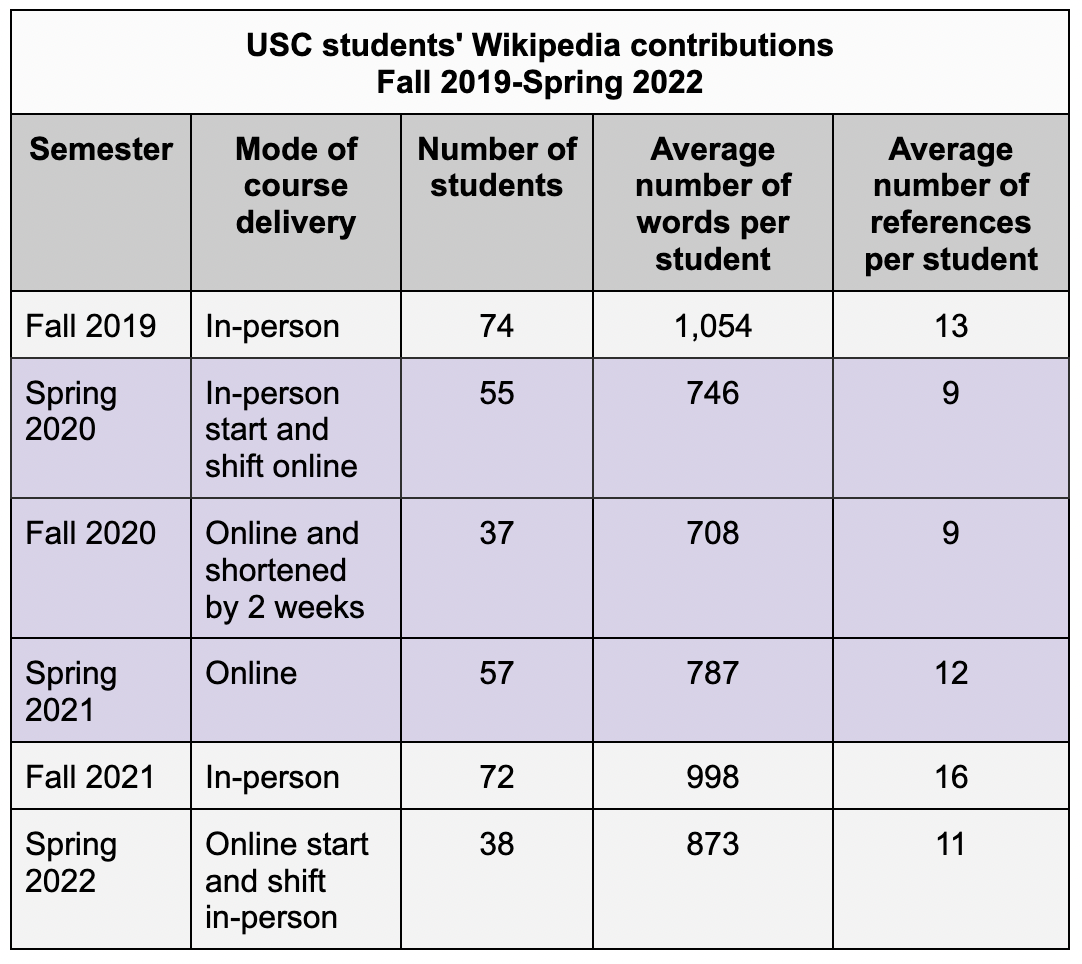
In Shetty’s classes the student contribution numbers during the same time remained almost the same. Students were able to participate with the same level of engagement and made similar contributions to their Wikipedia pages despite the change in the mode of teaching. The Wikipedia assignment worked well both for online and in-person classes.
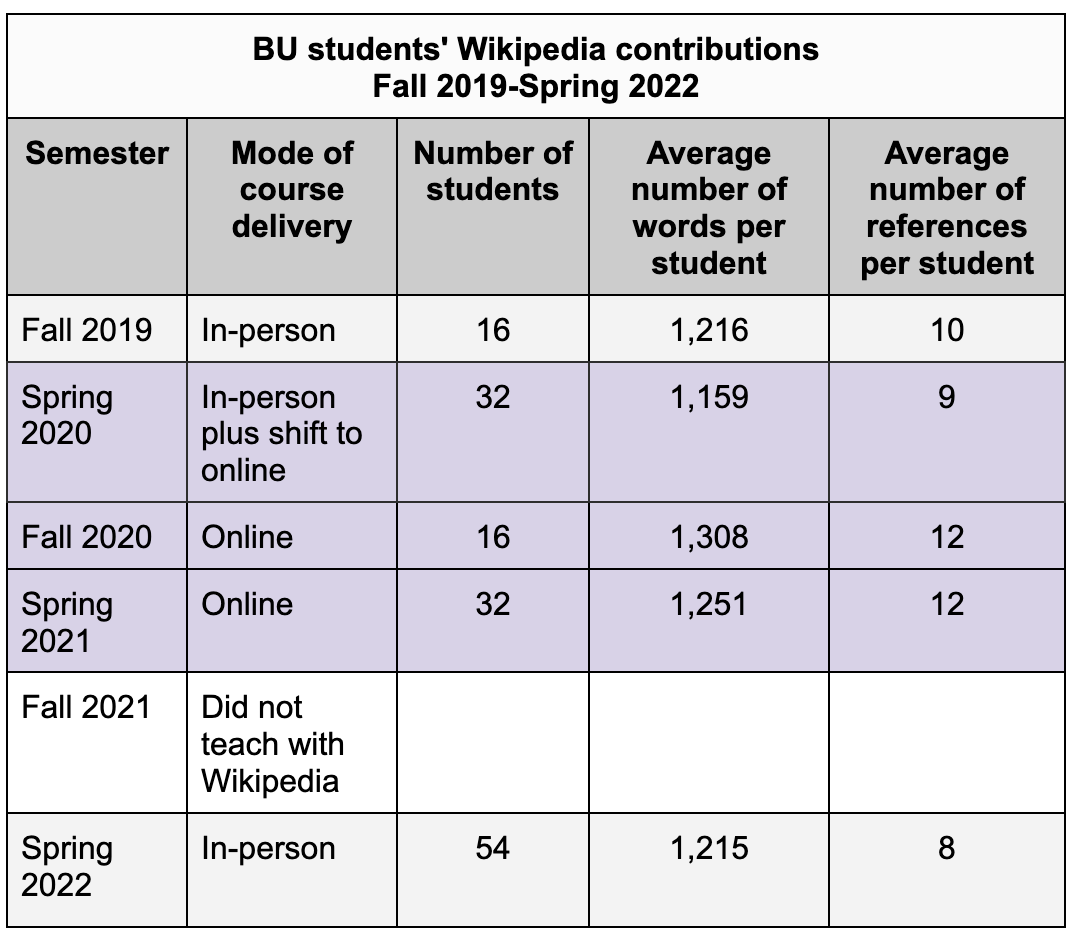
Student feedback
Based on students' feedback on the Wikipedia assignment, instructors note that students clearly view Wikipedia as an important source for knowledge acquisition and feel that writing for Wikipedia helps them hone their writing and research skills. Thus, despite exhortations to avoid Wikipedia by some in higher education (Jemielniak, 2019), students understand the value of their contributions, both as a way to give back to a source that they themselves often use and as a means to enhance their learning in the composition classroom. Students, and especially international students, also see the Wikipedia assignment as a way to share information about their backgrounds and cultures on a forum where their cultures are not always represented or not represented accurately.
Boston University
The feedback from the students on the Wikipedia editing assignment was universally positive. Besides providing positive feedback in the formal end-of-semester course evaluations, students also reflected on the assignment informally in their online Digication portfolios. Here are some reflections excerpted from student portfolios:
Portfolio Reflections
“..through editing my own Wikipedia page, I have learnt how to stay concise, coherent and objective with my writing.” (Hanako's WR120 Portfolio)
“..there are many pages about successful men on Wikipedia. This is why I want to create a page about an outstanding woman, Liang Yu. Women need to be seen. Their success needs to be memorized. I hope my article makes more people know about Liang Yu and promotes them to get to know more prominent women in the world.” (Becca's WR120 Portfolio)
“Wikipedia Project was the most inspiring assignment for me. Based on the improved writing, reading, and thinking skills, I could choose a topic and make a significant effort for the page on Wikipedia regarding the topic. For the project, I could maximize my benefits as a student studying Economics and International Relations. Actually, I want to go to law school to study International Law. These backgrounds led me to the topic regarding the acquisition of Korea Exchange Bank by Lone Star Funds. It was about Law, International Business, and Economics. Therefore, it was the topic that I could apply my knowledge that I have learned at Boston University. Plus, the involved parties for the topic were from South Korea, my home country, and from the United States where I am studying. In the process of searching information about the topic, I could experience a lot of articles, reports, and papers. So, I could get used to various genres of writing and get a better understanding about the topic. In addition, since I was writing for Wikipedia and about Law, I tried to be neutral and to convey the confirmed and accurate facts only as possible. Thus, through the project, I could learn how to write in a neutral tone and how to gather a lot of information, and how to effectively combine them like a summary. Moreover, the project was based on Wikipedia, so I could learn how to use and edit Wikipedia pages. It was my first time editing Wikipedia. Before this course, I looked up Wikipedia so many times, but never edited it. Hence, from completing the project, I could feel that I contributed to a kind of collective intelligence and feel excited because my efforts were published online where anyone can read. Then, I could realize how technology affects our language and knowledge. Technology allows people to share knowledge within the world, which is one of the main reasons for our lifestyle’s changes. Consequently, I could improve my writing, reading, and thinking skills further through the Wikipedia Project.” (Yoo Bin's WR 120 Portfolio)
“.. in the process of completing Wikipedia’s assignment, I learned a lot of fresh knowledge. This is undoubtedly one of the biggest tasks I have faced because the experience of editing Wikipedia has made me more cautious and thoughtful. From selecting a question at the beginning to selecting the reliable source of information to write the final editing, I need to think carefully about what I have written, because I know that what I will publish is influential, and every expression I make can become a source of information for others. So when writing content, I need to maintain an objective and neutral attitude. When I see some information, I need to judge reliability and authenticity.” (Jia Jia's WR 120 Portfolio)
University of Southern California
At USC, student feedback gathered from informal surveys, course evaluations, and class discussion largely aligns with research that suggests that the Wikipedia assignment can help increase motivation among students, as they may feel more invested in writing for an authentic and public audience (Cummings, 2008; Vetter, 2014; Vetter et al., 2019). Throughout the project, students often comment that "actual people" will read their work, and their frequent monitoring of articles to assess pageviews and any revisions of their work suggest that they are keenly aware of the public stance of this assignment. Many students even shared their Wikipedia article with family members. Such heightened motivation and enthusiasm have been found to be of value to the instructor's teaching experience as well, as engaged and motivated students can be very rewarding for the instructor, especially during strained circumstances (Leuthold & Gilli, 2019).
End-of semester surveys
Informal and anonymous end-of semester surveys (N=75) of Choi's students from the fall 2019, spring 2020, fall 2020, and spring 2021 semesters indicate a significant majority of students perceive the Wikipedia assignment to be helpful in improving their collaboration, writing, and research skills. Over 80% of student respondents agreed or strongly agreed that the assignment helped them improve all three types of skills. Of particular note was the finding that nearly all student respondents agreed or strongly agreed that the assignment helped them improve their digital citizenship. Questions and 5-point likert scale responses are presented below:
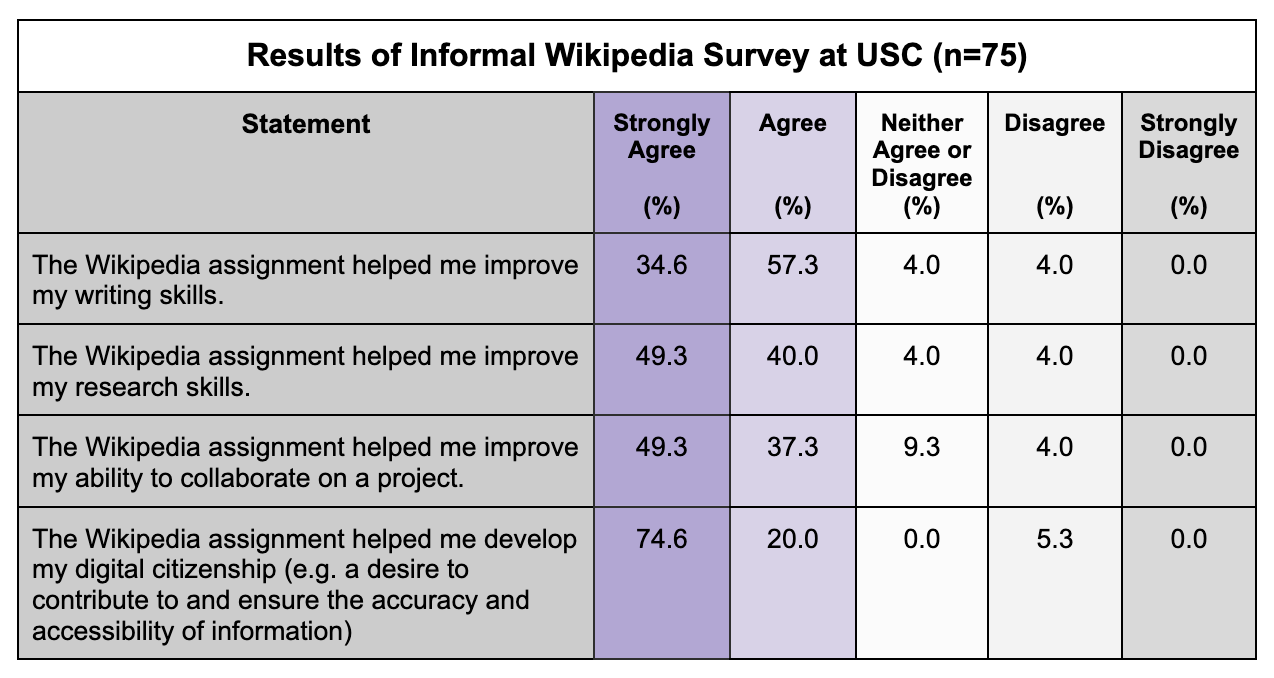
Such results echo the findings of large-scale studies suggesting that a majority of students perceive the Wikipedia assignment to be more helpful than traditional writing assignments to learn how to assess the reliability of sources, produce public writing, and learn as a team (Vetter et al., 2019).
A notable outcome of Choi's informal surveys was the strength of students' perceptions of how the assignment influenced the development of their desire to increase access to accurate information, as 94.6% of student respondents agreed or strongly agreed that this assignment helped them to consider their digital citizenship. This outcome may be related to the instructor's discussions with students regarding Wikipedia's content gaps and their ability to address such gaps in light of their positionality as well-resourced learners and researchers. In addition, students were required to complete WikiEdu's training materials which introduced them to the fundamental principles of Wikipedia such as adding encyclopedic (as opposed to marketing or lexicographical) content in a neutral tone, citing reputable sources, abiding by copyright laws, and interacting with others in a civil manner ("Five Pillars").
As some of these Wikipedian principles about digital citizenship align with aspirations presented in many codes of professional engineering ethics, Choi observed that the Wikipedia assignment may be useful to enhance learning about ethical principles in engineering by providing students opportunities to apply them in the real world. For example, both Wikipedians and professional engineers in the U.S. are expected to present information accurately to the public (Code of Ethics for Engineers). When students edit and contribute to Wikipedia, they not only learn about the principle of sharing accurate information, but they also experience what it means to apply that principle, as they must take care to examine the accuracy and reliability of their sources and craft their writing to precisely reflect the relevant information without violating copyright laws. Such connections are often made by students themselves: as one student noted in her course reflections, "[b]eing a good Wikipedian is like being an honest engineer; both produce work that people rely on everyday, so they need to work carefully and ethically."
Institutional support
Shetty and Choi both rely on the resources of WikiEdu to help students learn how to edit Wikipedia and build connections with other instructors conducting the assignment in various universities in the U.S. In addition, at BU, Shetty actively leads and participates in Wikipedia efforts in the wider BU community, including with other units such as the library and professional schools. At USC, Choi may currently be the only instructor participating in the WikiEdu program, and thus relies heavily on WikiEdu for professional support and networking.
BU Libraries are very actively involved in supporting Wikipedia initiatives and Wikipedia in the classroom. BU Libraries hosts edit-a-thons and workshops for faculty related to incorporating Wikipedia. Shetty works closely with the BU libraries to host workshops for faculty who are considering using Wikipedia in their own classes. She works with colleagues from the BU Medical School, the School of Public Health, and from other programs on campus on these workshops. The Wikipedia in the classroom initiative was featured in BU’s student newspaper, The Daily Free Press. Shetty has also jointly presented with BU librarians at Wiki Conference North America on creating a community of editors and teachers at Boston University. The Center for Teaching and Learning (CTL) at BU is also supportive of Wikipedia efforts as part of their Digital Learning and Innovation initiatives. Shetty has presented on “Hands-on Teaching” with Wikipedia as part of BU’s Center for Teaching and Learning’s Lighting Talks series.
Shetty is also a WikiEdu mentor in Wiki Education's Mentorship Program, where she mentors colleagues at BU and at other universities.
Like Shetty, Choi has connected with instructors outside her institution through WikiEdu's Mentorship Program. Choi has also participated in academic and professional conference panels with WikiEdu staff. For example, at the 2021 Creative Commons Global Summit, Helaine Blumenthal of WikiEdu, Heather J. Sharkey of the University of Pennsylvania, Delia Steverson of the University of Florida, and Choi spoke on a panel titled "When Students Contribute to Global Knowledge Production," in which they shared how they teach Wikipedia writing in various subject areas, such as Middle Eastern Studies, African American literature, and engineering (Blumenthal et al., 2022).
The WikiEdu blog also provides opportunities for instructors and students to write about their classroom experiences, and Choi and Shetty have each contributed to it. In fact, it was through the blog that they met and decided to work together on this article.
Conclusion
Before and during the COVID-19 pandemic, the authors taught the Wikipedia writing assignment with few, if any, modifications via in-person and online delivery modes with support from WikiEdu. In the remote learning and teaching environment, the Wikipedia assignment proved to be an excellent initiative that engaged and motivated students. And because students were able to contribute to Wikipedia remotely, the public-facing aspect of the assignment was empowering during a socially distanced time.
As the distinct and diverse assignments of Shetty and Choi show, there are many possible iterations of the Wikipedia assignment with respect to its specific design, scope, and duration, as it can be individual or group-based and include components such as translation, peer review, and varied scaffolding assignments. Such scaffolding assignments, such as reflection components and oral presentations, can be expanded or truncated depending on the external constraints on specific semesters. For example, when the fall 2020 online semester at USC was shortened by two weeks, Choi dropped the oral presentation component and consolidated a few scaffolding assignments. While students contributed fewer words and references than in other semesters, average grades for the final Wikipedia article and students' course evaluations remained consistent with those from standard 15-week-semesters. Similarly, during the more condensed summer semesters, Shetty’s students worked on their Wikipedia pages for fewer weeks and were still able to make significant contributions. In other words, the Wikipedia assignment can be easily adjusted to meet instructor and class requirements and to work within the logistical constraints of a particular class, section, semester, or teaching modality.
For Shetty and Choi's students, many of whom are multilingual and international, Wikipedia writing continues to be an empowering way to amplify their often-marginalized perspectives in university composition spaces. Multilingual students were able to use their language skills to translate and provide information and to find sources of information in other languages. International students were able to bring their cultural as well as their linguistic backgrounds into the classroom and to contribute information on topics that did not have sufficient coverage on Wikipedia. It is notable that Shetty’s students have so far created 31 new pages on Wikipedia. All of these new pages were created by Shetty’s multilingual international students. The assignment also provided a supportive classroom space so that all students were able to contribute, thus paving the way for students to consider becoming long-term Wikipedia editors. Some of Shetty’s students, for example, continue to edit and contribute to their pages even after the end of the semester and after the end of the course.
A critical teaching resource, WikiEdu continues to make positive and useful changes to its dashboard during the pandemic to keep up with evolving classroom needs. The updated dashboard makes it easier for the instructor to monitor and assess student contributions and provides additional training modules to prepare students for editing and contributing to Wikipedia. In addition, WikiEdu has long provided professional development and networking opportunities for instructors. Through the WikiEdu blog, instructor work is highlighted and the blog also provides a forum for instructors to collaborate and to mentor each other. On campus, instructors can fulfill academic service and other professional duties with WikiEdu support by leading Wikipedia edit-a-thons, instructor workshops, academic conferences, and by mentoring other instructors who are using Wikipedia in the classroom.
Both Choi and Shetty have found Wikipedia to be a valuable pedagogical tool in the writing classroom and a useful assignment to account for emergency situations requiring abrupt shifts in course delivery modes and other teaching modifications. Their experiences using Wikipedia have been overwhelmingly positive in classroom and professional contexts, as they and their students have made contributions of knowledge that can lead to a "subtle and nuanced shifting of the public and academic dialogue" (Lugosi et al., 2022). This real-life impact lies not only in reaching an authentic audience that vastly exceeds that of most academic and peer-reviewed writing, but also in the empowerment of students and teachers who challenge the traditional hierarchy of knowledge dissemination both inside and outside the classroom by writing for the world's encyclopedia (Sweeney, 2012).
External Links
Assignments
WikiEdu course dashboards
Student contributions
USC edited pages
BU new pages
BU edited pages
References
Balch, O. (2019). Making the edit: Why we need more women in Wikipedia. The Guardian. Retrieved February 11, 2022.
Blumenthal, H., Steverson, D., Choi, H., & Sharkey, H.J., (2022). When Students Contribute to Global Knowledge Production. Serials Review, 48(1).
"Code of Ethics for Engineers," National Society of Professional Engineers,
Cohen, N. (February 9, 2014). Wikipedia vs. the Small Screen. The New York Times.
Cummings, R.E. (2008). Lazy virtues: Teaching writing in the age of Wikipedia. Nashville, TN: Vanderbilt University Press.
Eberlein, T., Kampmeier, J., Minderhout, V., Moog, R.S., Platt, T., Varma-Nelson, P., & White, H.B. (2008). Pedagogies of engagement in science: A comparison of PBL, POGIL and PLTL. Biochemistry and Molecular Biology Education, 36(4), 262-73.
Eijkman, H. (2010), Academics and Wikipedia: Reframing Web 2.0+as a disruptor of traditional academic power‐knowledge arrangements. Campus-Wide Information Systems, Vol. 27 No. 3, pp. 173-185.
"Five Pillars," Wikipedia Policies, Wiki Education Training Libraries.
"Gender bias on Wikipedia,"" (2022, June 3), Wikipedia.
Hill, B. M. & Shaw, A. (2013). The Wikipedia Gender Gap Revisited: Characterizing Survey Response Bias with Propensity Score Estimation. PLOS ONE, Public Library of Science.
Hirshfield, L. & Chachra, D. (2015). Task choice, group dynamics and learning goals: Understanding student activities in teams. 2015 IEEE Frontiers in Education Conference: Launching a New Vision in Engineering Education Proceedings, FIE 2015, 1-5.
Jemielniak, D. (2019). Commentary: Wikipedia: Why is the common knowledge resource still neglected by academics? GigaScience, 8, pp. 1–2. doi: 10.1093/gigascience/giz139
Kataria, M. (Feb. 6, 2020). Wikipedia in the Classroom encourages students to serve the public. The Daily Free Press.
Leuthold, J. & Gilli, A. (2019). Translating Scientific Articles to the Non-scientific Public Using the Wikipedia Encyclopedia. Frontiers in Education, 4(15), 1-10,
Lugosi, N. VT, Patrie, N. & Cromwell, K. (2022): Theorizing and implementing meaningful Indigenization: Wikipedia as an opportunity for course-based digital advocacy, Critical Studies in Education, DOI: 10.1080/17508487.2022.2074489.
McDowell, Z. J., & Stewart, M. D. (2019). Student learning outcomes with Wikipedia-based assignments. The International Journal of Open Educational Resources, 1(2), 25055.
McFadzean, E., & Mohabir-McKinley, S. (2021). All a Matter of Intelligence: Faculty Competencies for Virtual Learning. In C. Bissessar (Ed.), Emergency Remote Learning, Teaching and Leading: Global Perspectives (pp. 123–157). Springer International Publishing.
Pratesi, A., Miller, W., & Sutton, E. (2019). Democratizing Knowledge: Using Wikipedia for Inclusive Teaching and Research in Four Undergraduate Classes. Radical Teacher, 114, 22-33. https://doi.org/10.5195/rt.2019.517
Ramirez, M. & Marquez, A. (2021). Latinx Authorship and Representation in Digital Spaces:Wikipedia as a Tool to Decolonize the HSI Classroom. Association of Mexican American Editors,15(1), 57-89.
Sample, M. (2011). Building and Sharing (When You’re Supposed to be Teaching). Journal of Digital Humanities. Journal of Digital Humanities, 1(1).
Sweeney, M. (2012). The Wikipedia Project: Changing Students from Consumers to Producers. Teaching English in the Two-Year College. Vol. 39, No. 3, March 2012.
Vetter, M.A. (2014). What composition students and academic libraries can gain from digital-collaborative pedagogies. Composition Studies, 42(1), 35-53.
Vetter, M. A., McDowell, Z. J., & Stewart, M. (2019). From Opportunities to Outcomes: The Wikipedia-Based Writing Assignment. Computers and Composition.
“Who Writes WIKIPEDIA?” Wikipedia, Wikimedia Foundation, 14 Aug. 2021.
“Wiki Education.” Wiki Education, wikiedu.org.
"Wiki Education Dashboard." Wiki Education.





